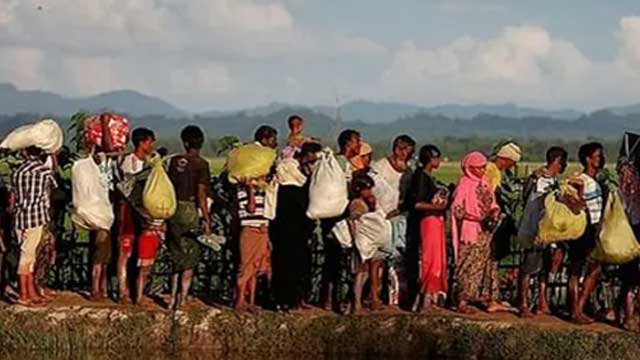The United States has announced nearly $180 million in additional humanitarian assistance for those affected by the Rohingya refugee crisis in Myanmar, Bangladesh, and elsewhere in the region.
Ambassador to the United Nations Linda Thomas-Greenfield made the announcement on Wednesday, said a press release by the State Department.
The US also commended Bangladesh and other countries supporting this response, and working toward a just and durable solution for Rohingya refugees and internally displaced persons.
The US hoped that other donors would come forward now with additional funds to sustain and increase support for the refugee crisis, and work for a durable solution.
With this new funding, the total humanitarian assistance by the US reaches more than $1.5 billion since August 2017, when over 740,000 Rohingya were forced to flee ethnic cleansing and other horrific atrocities and abuses in Rakhine State to safety in Cox’s Bazar, Bangladesh, read the statement.
This total funding includes more than $1.2 billion for programs in Bangladesh and allows the US humanitarian partners to provide life-saving assistance to the nearly 900,000 Rohingya refugees in Bangladesh.
It also provides support to more than 472,000 affected members of the local host community in Bangladesh.
Ambassador Thomas-Greenfield demanded that the military junta immediately stop the violence, release all those unjustly detained, restore its path to democracy, and implement Asean’s Five Point Consensus.
“We also call on the regime to allow immediate and unhindered humanitarian access to people in need — including for the delivery of critical Covid-19 assistance.”
‘More is required’
The US humanitarian assistance delivers across multiple realms, including education, food security, health, nutrition, protection, shelter, disaster response, water, sanitation, and hygiene.
An aerial view of accommodations for the Rohingya at Bhashan Char AFP
The ambassador applauded humanitarian actors for a strong and well-coordinated humanitarian response, which includes preventing and responding to the Covid-19 pandemic.
“The United States recognizes the challenges and responsibilities that the response has placed on the people and Government of Bangladesh, and we underscore the continued commitment of the international community to addressing and resolving this crisis,” Ambassador Thomas-Greenfield said in the statement.
“We commend the people and Government of Bangladesh, who have responded generously to the refugees who have arrived in Bangladesh. However, more assistance is required.”
‘Coup leaders behind atrocities against Rohingya’
Criticizing the February 1 military coup d’état and brutal military crackdown, the ambassador said, the US would continue to support Bangladesh and other countries that had made the humanitarian gesture to receive refugees from Myanmar.
“Many of those who led the military coup in Burma are the same individuals responsible for the atrocities against Rohingya, as well as atrocities and other human rights abuses against members of other ethnic and religious minority groups,” Ambassador Thomas-Greenfield said.
In the last few months, the US imposed sanctions on several military rulers and related entities, freezing any of their US assets and barring Americans from dealing with them.
On the other hand, Canada imposed additional sanctions on individuals and entities tied to the Myanmar armed forces, while the United Kingdom announced sanctions against state-owned enterprise Myanmar Gems Enterprise.
The trial of Suu Kyi
The Myanmar junta put ousted leader Aung San Suu Kyi on trial for incitement, her lawyer said on Tuesday, the latest in a list of charges that could see her jailed for decades.
The Nobel laureate, 76, has been under house arrest ever since the coup, with meetings with her lawyers and court appearances her only link to the outside world.
She pleaded not guilty to charges of incitement. Each charge carries a maximum of three years in prison.
Ousted president Win Myint also pleaded not guilty to incitement.
Next month she will face a new trial on corruption charges, and she has also been charged with violating a colonial-era secrecy law, although this has also yet to come to court.





